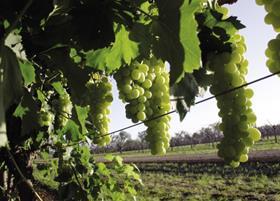
Leading Australian fresh produce company Costa Group has set out where it intends to create long-term growth in its 2019 annual report.
This report, released on 22 April, follows withdrawal of its earning guidance and earlier reporting of its financial results, which detailed a challenging 2019.
The annual report presents the circumstances which impacted Costa’s performance last year but also outlines the company’s focus going forward.
Neil Chatfield, chairman of Costa Group, said the report reflects what was a very difficult year for the company, in which it faced issues relating to drought and weather, and market conditions in some categories.
“While it has clearly been important to address the immediate short-term challenges of the year just passed, the board and management team have remained focused on building medium to long-term profit growth through a number of strategic initiatives,” Chatfield said in the report.
“These include our enlarged blueberry breeding program, aimed at developing sub-tropical and tropical varieties to underpin our operations in Australia, Morocco and China, as well as licensing programs in the Americas, South Africa and China. The IP we continue to develop, including the leading premium variety, Arana, gives us the advantage of superior product genetics.”
Harry Debney, managing director and chief executive of Costa Group, provided more detail on the company’s categories going forward.
Its strong export performance in citrus remains a highlight, with over 70 per cent of the crop exported in 2019. Debney said further reductions in tariffs in the Korean market bodes well and trialing of protected citrus cropping had delivered positive results.
Costa anticipates achieving 52-week production coverage in 2020 for its blackberries and its long cane raspberry and blackberry program is on track for commercialisation. It replanted 42ha of blueberries in the Atherton Tableland region in 2019, which is also expected to create improvement.
Debney said while 2019 was a tough year for its mushroom category Costa is well placed to capitalise when the market rebounds with the expansion of its Monarto facility, where weekly production capacity is expected to double from 120 tonnes to 240 tonnes.
The company also expects to reach its 2m tray production target for avocados in the next three to four years, which would position the company to capitalise on export opportunities, according to Debney.
In table grapes, one category that achieved success in 2019 for Costa, the company will continue to develop its Sun World proprietary programme and expects to have 100 per cent of its crop covered by permeant netting by 2020.



